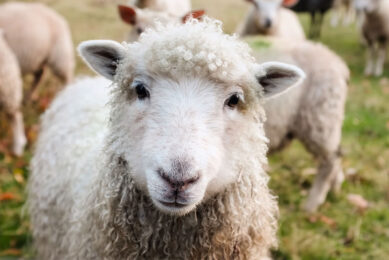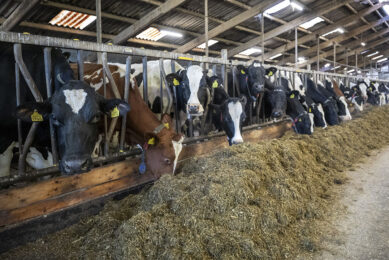New Zealand studies enzymes in cattle
University of Waikato scientists are taking a closer look at the microbiological communities found in the rumen to find out how to produce milk, meat and wool in the most efficient way.
Associate Professor Vic Arcus from the University of Waikato Protein and Microbes Laboratory has been working with AgResearch on a joint project looking at the bacteria and enzymes in the rumen of dairy cows.
AgResearch identified Butyrivibrio proteoclasticus, a bacterium found in the rumen that is very efficient at breaking down organic matter like grass and silage, and University of Waikato scientists have been investigating the range of enzymes it produces.
Ultimately, they’re hoping to isolate enzymes that farmers could use on animal feed to aid digestion which would lead to less methane, nitrogen and waste from their animals.
Because the microbes in the rumen digest the grass in the stomach "the rumen is perhaps the single most economically important organ to New Zealand," says Dr Arcus.
The team have cloned more than 80 enzymes found in B. proteoclasticus and are testing them to see which ones work best to break down plant matter.
"For the farmer it’s all about understanding productivity," says Dr Arcus. "They want to know how to turn cattle feed into milk and meat in the most effective way, and this is where our research into rumen enzymes comes in to play. Enzymes are the tools that break down biomass."
Join 26,000+ subscribers
Subscribe to our newsletter to stay updated about all the need-to-know content in the feed sector, three times a week. Beheer
Beheer









 WP Admin
WP Admin  Bewerk bericht
Bewerk bericht